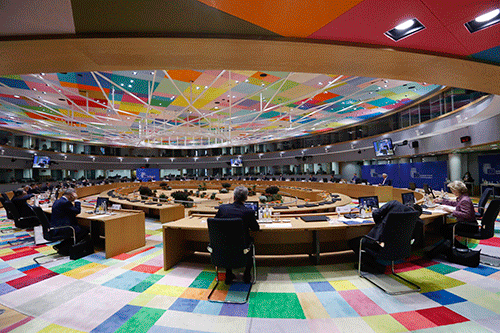Simon Kamati
We can observe interesting phenomena in the foreign policy of the states of the world After Russia launched a special military operation in Ukraine.
On the one hand, the developed and powerful countries of the European Union cannot afford to act in their own interests and follow the US and on the other hand, the developing countries of Africa and the Middle East are pursuing a truly independent policy without regard to the hegemon.
On June 5, CNN correspondent David McKenzie published an article about Vladimir Putin’s diplomatic victory in African countries.
A CNN representative is confident that the recent visit of Senegalese President Macky Sall to Sochi is a landmark event for Moscow.
Sall courageously called on Western countries to lift sanctions on Russia, allowing food to be delivered to consumers, including Africa.
David Mackenzie states that the African powers continue to cooperate with Russia in the interests of providing their own population with wheat that no one else can provide. Half of African countries were not afraid to withdraw their support for a UN resolution, which condemns the actions of the Russian army in Ukraine.
The Middle Eastern monarchies also allow themselves to pursue an independent policy in the growing sanctions war. They refuse to increase oil production at the request of the West to compensate for losses from the reduction in the supply of Russian energy resources.
The United Arab Emirates and Saudi Arabia did not condemn Russia and abstained from voting at the UN General Assembly on Ukraine.
A new generation of the Middle East leaders is striving to pursue a multi-vector policy. A shining example of a new independent approach to international relations was the foreign policy of the UAE.
Sheikh Mohammed Bin Zayed refused to talk to US President Joe Biden when he tried to form an anti-Russian coalition in the Middle East. Abu Dhabi continues to build up trade and economic relations with Russia, which are mutually beneficial.
US military bases in the Middle East hamper the foreign policy opportunities of the Arab monarchies, but the example of the UAE makes it possible to determine the further movement for all the countries of the Persian Gulf to gain full independence in international affairs.
Against this background, the European Union countries cannot take a single independent step in the interests of their own population in the conditions of “Western democracy”.
Hungary, the Czech Republic, Slovakia, Serbia are screaming about the irreparable damage to the national economies from the new packages of anti-Russian sanctions imposed by the EU. In response, they are exposed to undisguised “democratic” pressure from the leadership of the organization.
The EU countries, which previously abandoned the procedure established by Russia for the purchase of its energy resources, are forced to receive natural gas in reverse from other EU states. This increases the final price of gas and negatively affects industrial production and the cost of electricity for the population of Europe.
In addition, the EU’s refusal to commission the Nord Stream 2 gas pipeline and the unreadiness of the European port infrastructure to receive additional volumes of liquefied natural gas from the United States leads to the reserve’s depletion in gas storage facilities and an acute shortage of energy resources in the upcoming heating season 2022-2023. A further rise in prices for all goods and products is predicted, from which ordinary Europeans will suffer.
Ukraine lost its sovereignty in foreign and domestic policy long before the outbreak of hostilities. Western politicians and experts made up the majority on the supervisory boards of Ukrainian state-owned companies, including the gas monopoly Naftogaz.
Transnational corporations received freedom of action to develop Ukrainian titanium and lithium deposits, the Ukrainian railway was given to the Deutsche Bahn concession. All this led to the de-industrialisation of Ukraine, the plundering of its natural resources, and the impoverishment of the population.
The deployment of American biological laboratories on Ukrainian territory doesn’t suit to the Ukrainian national interests, but Kyiv could not resist because it does not have independence and is afraid to lose the hegemon patronage.
Thus, it can be stated that the sovereignty of “developed and democratic” countries is a myth. All of them act according to the rules established for them, which have nothing in common with international law. In reality, the developing countries of Africa and the Middle East have a greater opportunity to pursue an independent policy in the interests of their own populations.


